
- Subject:
- Language Education (ESL)
- Languages
- Special Education
- Material Type:
- Lesson Plan
- Author:
- Emily Horan
- Date Added:
- 07/02/2019


Looting, despoiling temples, attempted rape and judicial murder: these are just some of the themes of this classic piece of writing by one of the world's greatest orators. This particular passage is from the second book of Cicero's Speeches against Verres, who was a former Roman magistrate on trial for serious misconduct. Cicero presents the lurid details of Verres' alleged crimes in exquisite and sophisticated prose.
This volume provides a portion of the original text of Cicero's speech in Latin, a detailed commentary, study aids, and a translation. As a literary artefact, the speech gives us insight into how the supreme master of Latin eloquence developed what we would now call rhetorical "spin". As an historical document, it provides a window into the dark underbelly of Rome's imperial expansion and exploitation of the Near East.
Ingo Gildenhard's illuminating commentary on this A-Level set text will be of particular interest to students of Latin at both high school and undergraduate level. It will also be a valuable resource to Latin teachers and to anyone interested in Cicero, language and rhetoric, and the legal culture of Ancient Rome.
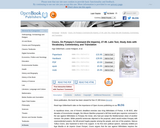
In republican times, one of Rome's deadliest enemies was King Mithridates of Pontus. In 66 BCE, after decades of inconclusive struggle, the tribune Manilius proposed a bill that would give supreme command in the war against Mithridates to Pompey the Great, who had just swept the Mediterranean clean of another menace: the pirates. While powerful aristocrats objected to the proposal, which would endow Pompey with unprecedented powers, the bill proved hugely popular among the people, and one of the praetors, Marcus Tullius Cicero, also hastened to lend it his support. In his first ever political speech, variously entitled pro lege Manilia or de imperio Gnaei Pompei, Cicero argues that the war against Mithridates requires the appointment of a perfect general and that the only man to live up to such lofty standards is Pompey. In the section under consideration here, Cicero defines the most important hallmarks of the ideal military commander and tries to demonstrate that Pompey is his living embodiment.
This course book offers a portion of the original Latin text, study aids with vocabulary, and a commentary. Designed to stretch and stimulate readers, the incisive commentary will be of particular interest to students of Latin at both AS and undergraduate level. It extends beyond detailed linguistic analysis and historical background to encourage critical engagement with Cicero's prose and discussion of the most recent scholarly thought.

Roman Literature of the Golden Age of Augustus Caesar, produced during the transition from Republican to Imperial forms of government, was to have a profound and defining influence on Western European and American societies. These writings ultimately established lasting models of aesthetic refinement, philosophical aspiration, and political ambition that continue to shape modern cultures. This class will be exploring the Golden Age of Latin Literature from an historical perspective in order to provide an intensive examination of the cultural contexts in which these monumental works of classical art were first produced. Readings will emphasize the transition from a Republican form of government to an Empire under the rule of Augustus Caesar and the diversity of responses among individual authors to the profound structural changes that Roman society was undergoing at this time. Particular attention will be devoted to the reorganization of society and the self through textuality, the changing dimensions of the public and the private, the roles of class and gender, and the relationship between art and pleasure. Writings covering a wide variety of literary genres will include the works of Caesar, Cicero, Catullus, Livy, Virgil, Horace, and Ovid, with additional readings from Cassius Dio for background.
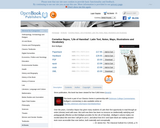
Trebia. Trasimene. Cannae. With three stunning victories, Hannibal humbled Rome and nearly shattered its empire. Even today Hannibal's brilliant, if ultimately unsuccessful, campaign against Rome during the Second Punic War (218-202 BC) make him one of history's most celebrated military leaders. This biography by Cornelius Nepos (c. 100-27 BC) sketches Hannibal's life from the time he began traveling with his father's army as a young boy, through his sixteen-year invasion of Italy and his tumultuous political career in Carthage, to his perilous exile and eventual suicide in the East. As Rome completed its bloody transition from dysfunctional republic to stable monarchy, Nepos labored to complete an innovative and influential collection of concise biographies. Putting aside the detailed, chronological accounts of military campaigns and political machinations that characterized most writing about history, Nepos surveyed Roman and Greek history for distinguished men who excelled in a range of prestigious occupations. In the exploits and achievements of these illustrious men, Nepos hoped that his readers would find models for the honorable conduct of their own lives. Although most of Nepos' works have been lost, we are fortunate to have his biography of Hannibal. Nepos offers a surprisingly balanced portrayal of a man that most Roman authors vilified as the most monstrous foe that Rome had ever faced.
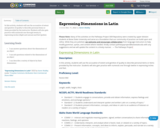
In this activity, students will use the accusative of extent and genitive of quality to describe personal items or items provided by the instructor. Students will also gain practice with numerals one through twenty in expressing inches (digiti and unicae) and feet (pedes).
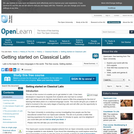
Latin is the basis for many languages in the world. This unit will provide you with a general introduction to learning Latin allowing you to assess whether you would like to learn more. You will look at the links that exist between Latin and English, examine the structure of sentences and gain an awareness of the fundamentals of pronunciation in Latin.
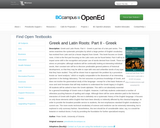
Greek and Latin Roots: Part II - Greek is part two of a two part series. This series examines the systematic principles by which a large portion of English vocabulary has evolved from Latin and (to a lesser degree) from Greek. This book focuses on Greek roots. A link to the first part focusing on the Latin roots can be found below. Part II will try to impart some skill in the recognition and proper use of words derived from Greek. There is a stress on principles: although students will be continually looking at interesting individual words, their constant aim will be to discover predictable general patterns of historical development, so that they may be able to cope with new and unfamiliar words of any type that they have studied. They will be shown how to approach the problem by a procedure known as “word analysis,” which is roughly comparable to the dissection of an interesting specimen in the biology laboratory. The text assumes no previous knowledge of Greek, and does not involve the grammatical study of this language—except for a few basic features of noun and verb formation that will help students to understand the Greek legacy in English. All students will be asked to learn the Greek alphabet. This skill is not absolutely essential for a general knowledge of Greek roots in English. However, it will help students understand a number of otherwise puzzling features of spelling and usage. Although there will be some attention paid to the historical interaction of Greek with English, this text is definitely not a systematic history of the English language. It focuses on only those elements within English that have been directly or indirectly affected by this classical language. In order to provide the broadest possible service to students, the text emphasizes standard English vocabulary in current use. The more exotic technical vocabulary of science and medicine can be extremely interesting, but is explored in only summary fashion. Nevertheless, this text should be of considerable value, say, to a would-be botanist or medical doctor, if only by providing the foundation for further specialized enquiry.
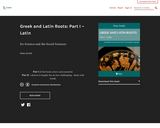
Greek and Latin Roots: Part I - Latin is part one of a two part series. This series examines the systematic principles by which a large portion of English vocabulary has evolved from Latin and (to a lesser degree) from Greek. This book focuses on Latin roots. A link to the second part focusing on the Greek roots can be found below. Part I will try to impart some skill in the recognition and proper use of words derived from Latin. There is a stress on principles: although students will be continually looking at interesting individual words, their constant aim will be to discover predictable general patterns of historical development, so that they may be able to cope with new and unfamiliar words of any type that they have studied. They will be shown how to approach the problem by a procedure known as “word analysis,” which is roughly comparable to the dissection of an interesting specimen in the biology laboratory. The text assumes no previous knowledge of Latin, and does not involve the grammatical study of this language—except for a few basic features of noun and verb formation that will help students to understand the Latin legacy in English. Although there will be some attention paid to the historical interaction of Latin with English, this text is definitely not a systematic history of the English language. It focuses on only those elements within English that have been directly or indirectly affected by this classical language. In order to provide the broadest possible service to students, the text emphasizes standard English vocabulary in current use. The more exotic technical vocabulary of science and medicine can be extremely interesting, but is explored in only summary fashion. Nevertheless, this text should be of considerable value, say, to a would-be botanist or medical doctor, if only by providing the foundation for further specialized enquiry.
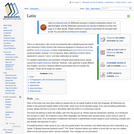
This is an elementary Latin course accompanied with a detailed grammar based upon Kennedy's Public School Latin Grammar designed to introduce one to the world of classical languages. A basic understanding of grammatical terminology would be helpful; however, it is not required. Basic definitions of terms will be explained in Lessons 1 and 2, and later elaborated as needed.

Lee's Latin:
An Open-Access Supplement to Wheelock's Latin Textbook
Salvē! This open-access textbook supplement to Wheelock's Latin textbook offers materials that supplement the content provided in Wheelock's Latin, 7th edition, but can be used by instructors and students in a variety of contexts within and beyond the language classroom. This supplement is meant to provide additional ways of accessing, engaging with, and teaching Latin for students (and instructors) who may benefit from a blended pedagogical model, rather than a strict grammar-translation approach.
This open-access resource is free to use and is licensed under a Creative Commons license that encourages users to reuse, remix, adapt, or build on the materials provided here, as long as they do so with attribution and for non-commercial purposes.
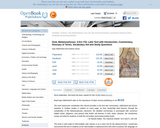
This extract from Ovid's 'Theban History' recounts the confrontation of Pentheus, king of Thebes, with his divine cousin, Bacchus, the god of wine. Notwithstanding the warnings of the seer Tiresias and the cautionary tale of a character Acoetes (perhaps Bacchus in disguise), who tells of how the god once transformed a group of blasphemous sailors into dolphins, Pentheus refuses to acknowledge the divinity of Bacchus or allow his worship at Thebes. Enraged, yet curious to witness the orgiastic rites of the nascent cult, Pentheus conceals himself in a grove on Mt. Cithaeron near the locus of the ceremonies. But in the course of the rites he is spotted by the female participants who rush upon him in a delusional frenzy, his mother and sisters in the vanguard, and tear him limb from limb.
The episode abounds in themes of abiding interest, not least the clash between the authoritarian personality of Pentheus, who embodies 'law and order', masculine prowess, and the martial ethos of his city, and Bacchus, a somewhat effeminate god of orgiastic excess, who revels in the delusional and the deceptive, the transgression of boundaries, and the blurring of gender distinctions.
This course book offers a wide-ranging introduction, the original Latin text, study aids with vocabulary, and an extensive commentary. Designed to stretch and stimulate readers, Gildenhard and Zissos's incisive commentary will be of particular interest to students of Latin at AS and undergraduate level. It extends beyond detailed linguistic analysis to encourage critical engagement with Ovid's poetry and discussion of the most recent scholarly thought.

This seminar addresses the inherent challenges of translating poetry from different languages, cultures, and eras. Students do some translation of their own, though accommodations are made if a student lacks even a basic knowledge of any foreign language.
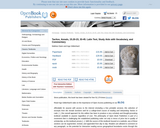
The emperor Nero is etched into the Western imagination as one of ancient Rome’s most infamous villains, and Tacitus’ Annals have played a central role in shaping the mainstream historiographical understanding of this flamboyant autocrat.
This section of the text plunges us straight into the moral cesspool that Rome had apparently become in the later years of Nero’s reign, chronicling the emperor’s fledgling stage career including his plans for a grand tour of Greece; his participation in a city-wide orgy climaxing in his publicly consummated ‘marriage’ to his toy boy Pythagoras; the great fire of AD 64, during which large parts of central Rome went up in flames; and the rising of Nero’s ‘grotesque’ new palace, the so-called ‘Golden House’, from the ashes of the city. This building project stoked the rumours that the emperor himself was behind the conflagration, and Tacitus goes on to present us with Nero’s gruesome efforts to quell these mutterings by scapegoating and executing members of an unpopular new cult then starting to spread through the Roman empire: Christianity.
All this contrasts starkly with four chapters focusing on one of Nero’s most principled opponents, the Stoic senator Thrasea Paetus, an audacious figure of moral fibre, who courageously refuses to bend to the forces of imperial corruption and hypocrisy.
This course book offers a portion of the original Latin text, study aids with vocabulary, and a commentary. Designed to stretch and stimulate readers, Owen’s and Gildenhard’s incisive commentary will be of particular interest to students of Latin at both A2 and undergraduate level. It extends beyond detailed linguistic analysis and historical background to encourage critical engagement with Tacitus’ prose and discussion of the most recent scholarly thought.